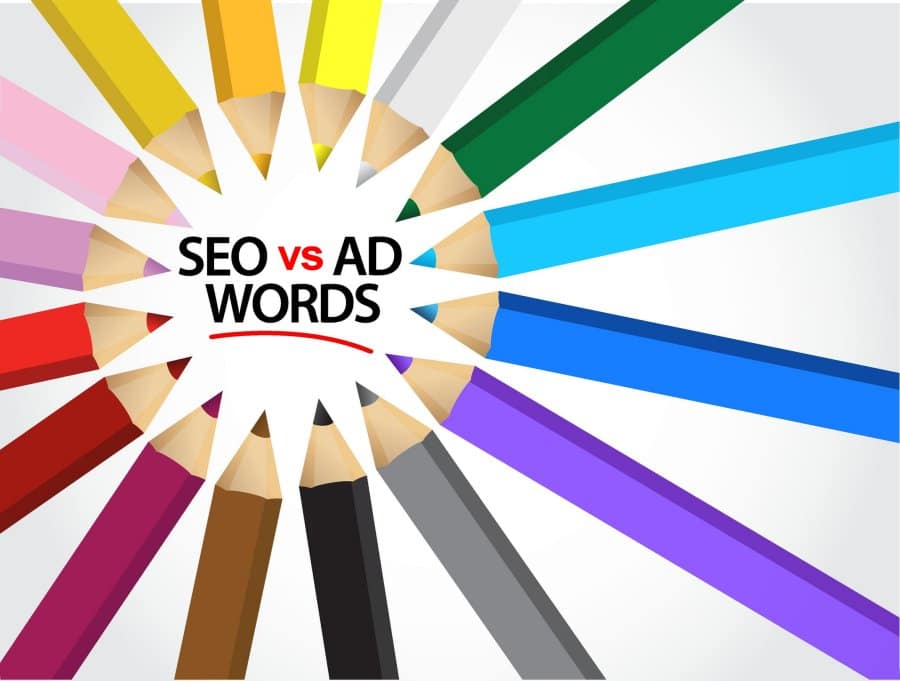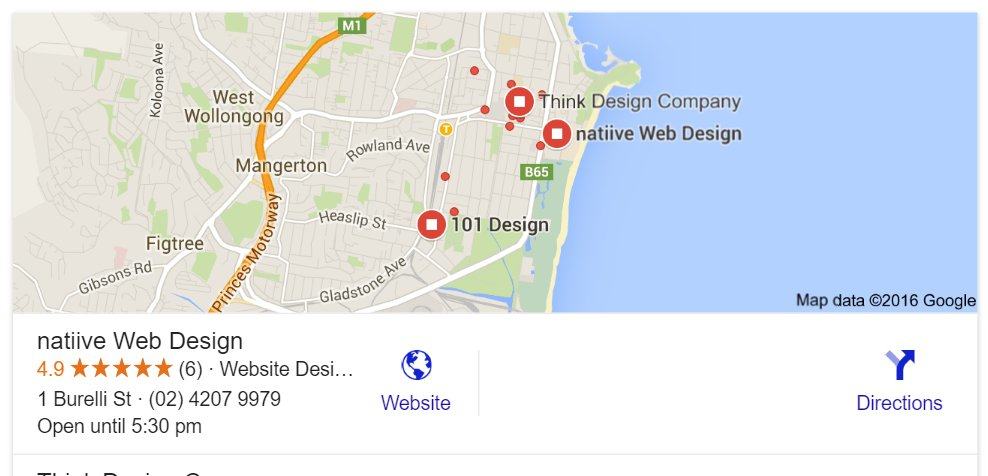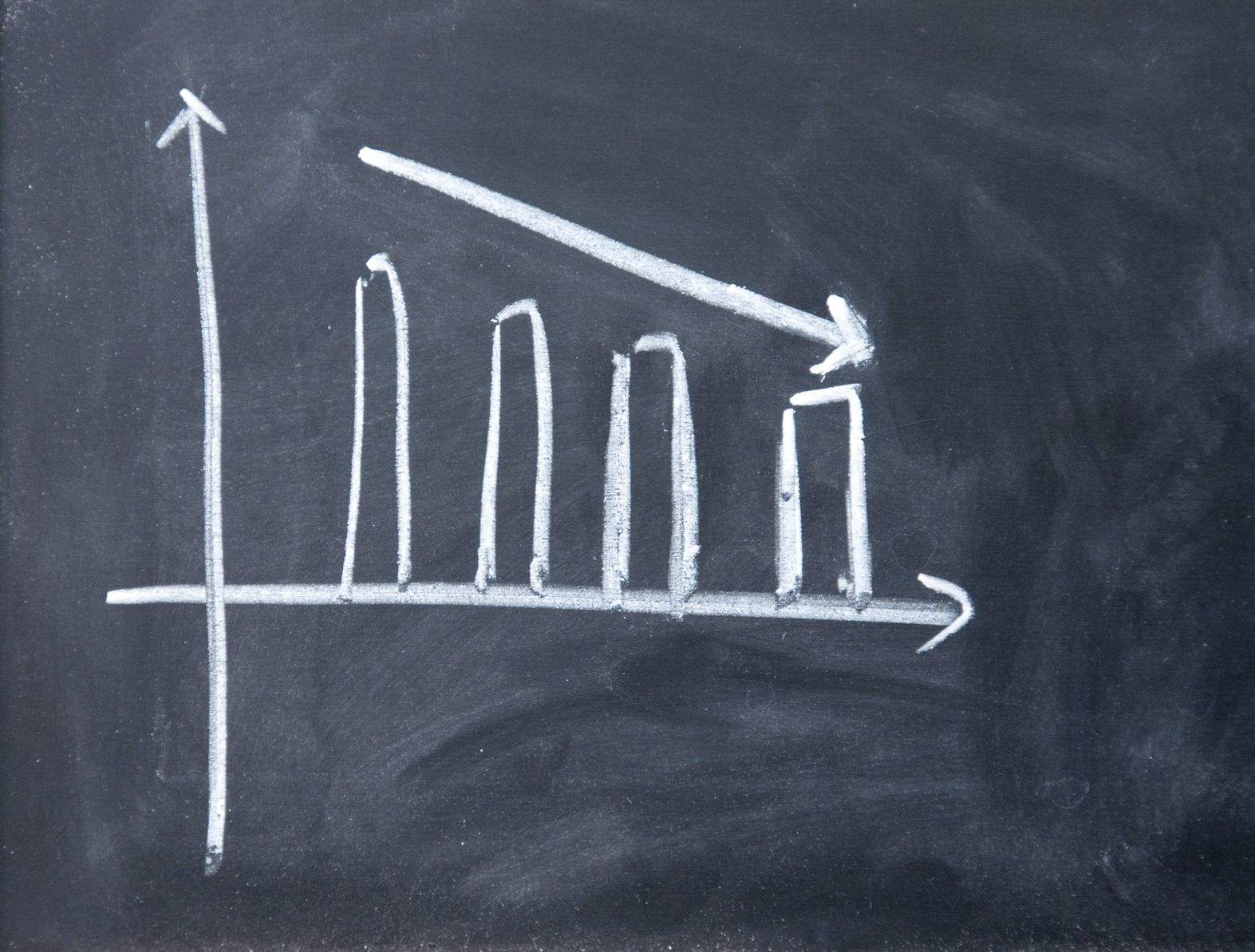
With Google’s recent search results changes it seems that paid search is increasing in focus to the detriment of organic.
Paid advertising – such as Google AdWords – is a great way to boost traffic to your website and can increase leads, but it can quickly become an expensive endeavour if you’re not careful.
Organic SEO (Search Engine Optimisation) is arguably free, but behind the scenes takes a lot of effort in order to achieve a good ranking and in many cases also maintaining it.
Paid Search: Google AdWords
Before getting started with Paid Search you need to know what you want your listing to appear for. The Google AdWords tool is a great resource for analysing and understanding keywords and traffic for your industry.
One key problem with the tool however is that it tends to push you more towards very broad keywords. These are almost always much more expensive and far less effective when considering leads and conversions you’re seeking.
I was speaking with a Marketing Manager for a large company the other day and they complained that they had been putting a huge amount of money into Google AdWords and getting traffic but not getting quality leads. In fact they noticed their ads were coming up for things they didn’t even do – they were wasting almost all of their budget!
In starting a campaign try to understand what your customers are typing in to find your service. Often it is not the broad (known as ‘head’) expensive search terms, but what are called longtail terms – often much cheaper with less competition but a potential goldmine for new enquiries.
This is the single biggest mistake first time marketers – and even web agencies – make when setting up a campaign. Setting a head keyword or phrase opens you up to all sorts of loose variations of that type of term – often many are totally unrelated to what you do.
It is also important to periodically – we recommend monthly even for a few minutes – review your campaign. You can view the search terms that are used where your paid result appears and even what people click on and you can block that term from appearing in future – saving you spend. Again most people including agencies either have no idea this is a feature or do not take the time to filter the campaign…
Even with the changed search layout it is still proven that only 30% of users will click on a paid Ad result, the rest – the vast majority – will go down the page to the organic search results.
Plus according to a recent survey 26% of internet users indicate that they use some form of Ad Blocking software. This renders AdWords and other Paid search totally useless.
We have seen businesses who only use AdWords and nothing else to promote their business effectively – but they are in the vast minority.
Organic Search: SEO
Search Engine Optimisation (SEO) ‘costs’ nothing in order for your website to appear in search results. However the process of achieving that ranking (and keeping it) can involve a lot of time and money…
SEO is based on over 200 individual factors that form part of a Search Engine’s algorithm or way of evaluating and then ranking your website. In Google’s case with recent algorithm changes they have placed a focus on good quality content – writing quality articles and information for your web visitors.
Generally speaking your ranking is made up of factors on your page (on-page) and off of your page (off-page).
On page factors include code and tags that make up your website. Things like TITLE tags, Descriptions, Heading tags and more are analysed and indexed. But as mentioned earlier much of the ranking comes from an analysis of what you have on the page – content.
Off page factors are a little more difficult, but generally include links to your website from other websites. Further recent changes to Google’s algorithm though have meant that industry related websites are the focus and in many cases you don’t need a lot in order to rank well. The argument is though that if website’s are linking to you (and not just your main page but sub pages as well) then your content must be good and something that is useful to users – Google will pay more attention to your website.
In location based (or local) searches often a map pack will appear – a strong website and fully completed Google My Business listing will help boost your business likely into one of those first 3 positions. Another benefit from getting your website in order organically, you cannot pay for it.

1st place in the map pack – a result of strong SEO.
As the internet continues to mature many websites are developing their websites, putting more into them as a key marketing tool and reaping the benefits. This also means that the goal posts are moving, your website may once have ranked well but because perhaps it’s static or code was never really targeting anything, you begin to fall behind.
—
AdWords is a good way to ‘instantly’ appear at or near the top of search results. But be careful to monitor search terms and exclude what is irrelevant in order to minimise wasted spend. Of course the moment you stop spending the results disappear.
Search Engine Optimisation may be free, but takes a lot of effort in order to rank well. And as your competition realises that the internet is a great marketing tool it means increased effort is required to stay higher in the rankings.
In 2016 there is a case for both to be a part of your marketing strategy but be careful to ensure you monitor and get results or get the reporting that is available to prove effective ad spend.



